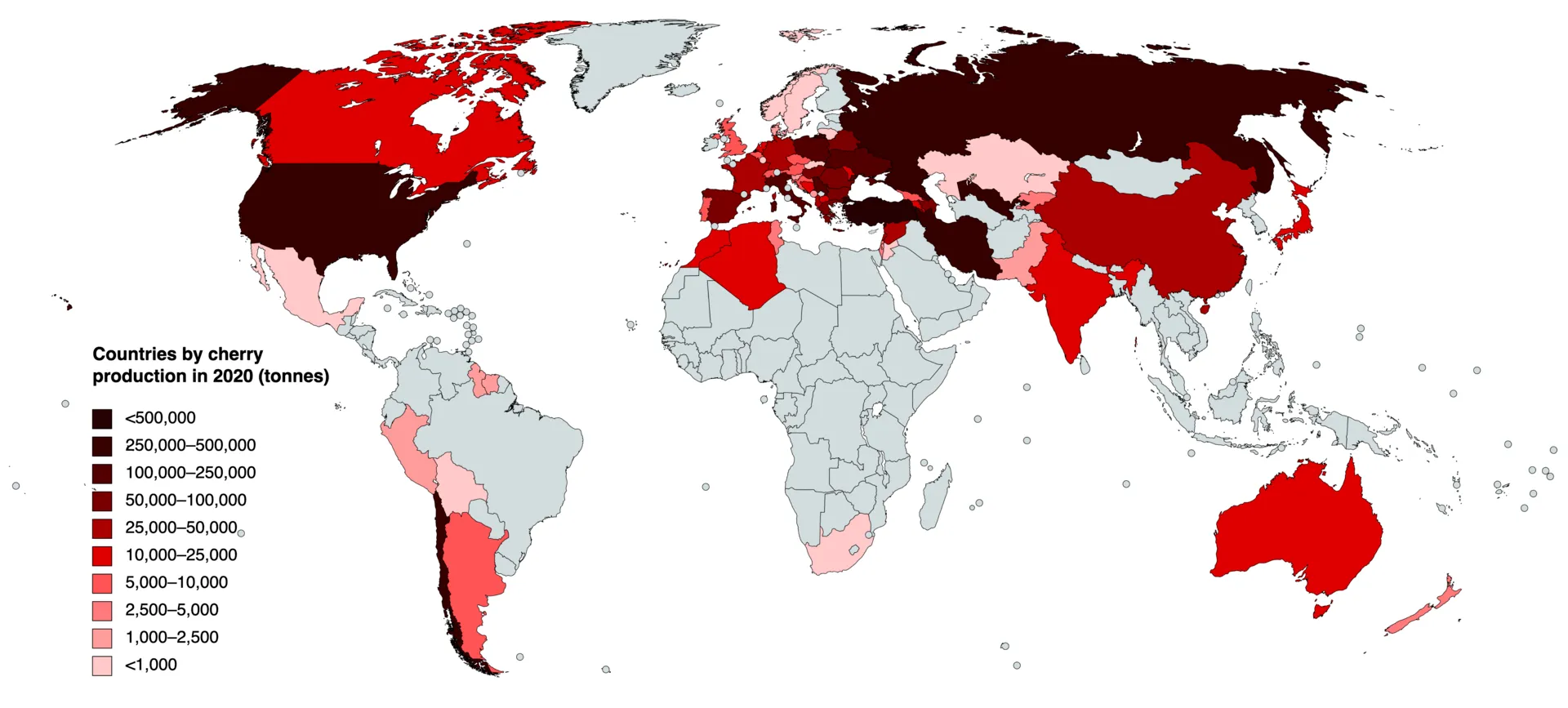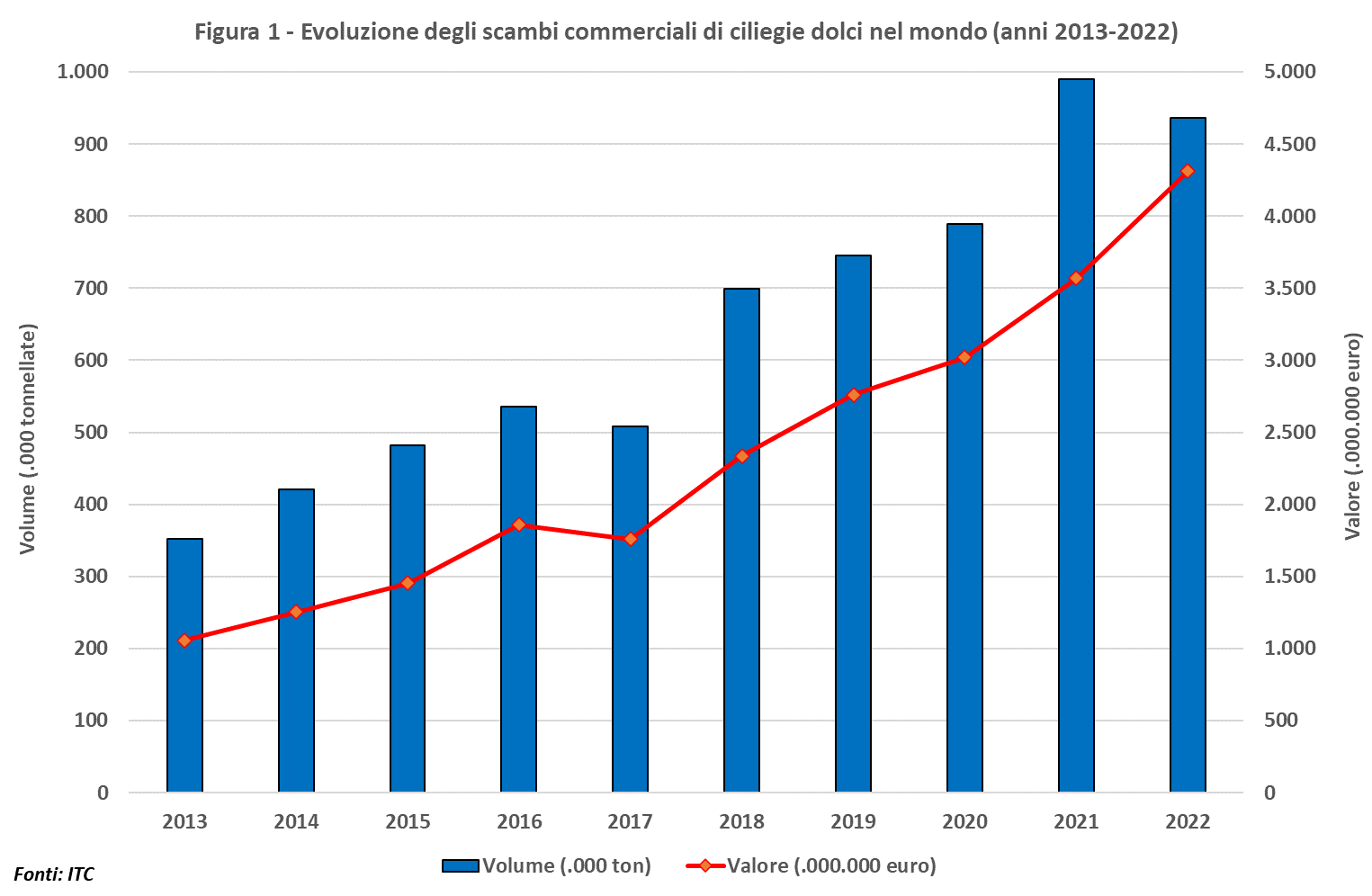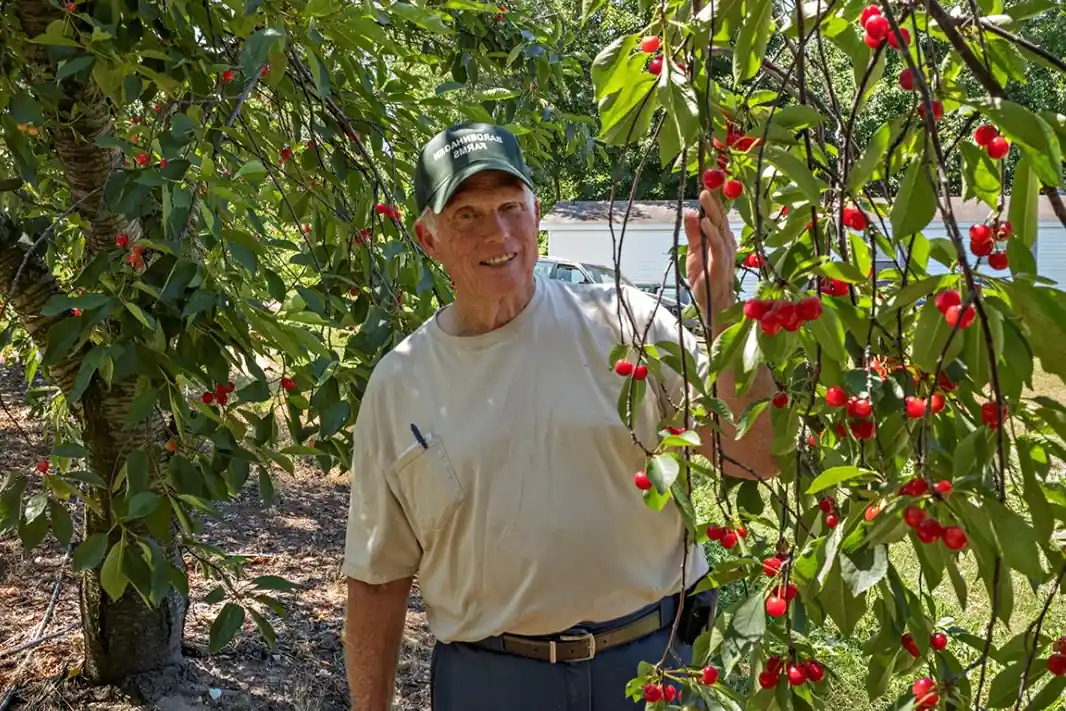French supermarkets block the import of strawberries and cherries: “Bad for the environment and for French farmers
Two French supermarket chains will no longer sell strawberries and fresh cherries from abroad this winter. The reason is the CO2 emissions associated with transportation by truck, ship, and/or plane. In addition to improving sustainability, the supermarket chains Intermarché (1,800 stores) and Netto (400 stores) want to use this measure to also encourage their own farmers, focusing more on local products. Flemish experts react with skepticism: “This is a form of greenwashing.” Moreover, French farmers would be deceived if other countries adopted a similar strategy and banned French imports.
Belgian experts react with indignation to the fact that two French supermarket chains are banning the import of fresh strawberries and cherries from their shelves in November and December. “This is a form of greenwashing,” says Veerle Vandersypt, secretary of Fresh Trade Belgium, the professional federation of fresh fruit and vegetable traders.
French supermarkets argue that imported products are not sustainable. They emphasize the CO2 released during transportation. Cherries, for example, arrive by plane from Chile and Argentina, while strawberries mainly come from Spain and Morocco. “Transportation is just one aspect of sustainability. One must also consider cultivation and packaging, for example. It is possible that local production, perhaps in greenhouses, is less sustainable,” says Veerle Vandersypt.
The author also highlights the health aspect. “Imports occur mainly out of season and supplement the local supply. It is also important to offer consumers a healthy and varied choice. This too is a form of sustainability.” Even though imports involve transportation, according to Vandersypt, fruits and vegetables can still fare better than meat, for example. Additionally, transportation deserves some nuances. “For instance, some products are transported on passenger planes that are flying anyway.”
French sovereignty
In addition to sustainability, the supermarket chains emphasize its importance for French farmers. “We are aware that the problems of the agricultural world have not yet been resolved and that we have a collective responsibility to act,” says Thierry Cotillard of Les Mousquetaires, the holding company above Intermarché and Netto. Selling more local products will help local farmers and the French economy. “We want to do our part for food sovereignty and French agriculture.”
Although this seems positive for agriculture, Veerle Vandersypt states that things could be completely different. “During the season, French products are exported to countries where they are scarce, where they also represent an important nutritional supplement for local products. If other countries adopt the same strategy as French supermarkets, French farmers will lose their sales.”
According to Vandersypt, for the moment, Belgian growers have no reason to worry, and members of Fresh Trade Belgium are not yet experiencing any damage. “It seems to me that foreign imports have been specifically targeted. To avoid triggering the French nationalist reflex, it is better to maintain a 'low profile' and not put too many Belgian flags on our products.”
 Image 1: Countries by cherry production (in tons) in 2020.
Image 1: Countries by cherry production (in tons) in 2020.
A marketing ploy
Luc Vanoirbeek, secretary of the Association of Belgian Horticultural Cooperatives (VBT), refers to the reaction of Dutch colleague Wilco van den Berg of GroentenFruit Huis. The latter speaks of “juggling numbers.” For example, there is talk of French import volumes of 8,000 tons for cherries and 60,000 tons for strawberries. “But these are annual figures. In winter, imports are at a much lower level.”
For this reason, Tessa Avermaete, bioeconomist at KULeuven, suggests that the supermarkets' action should primarily be seen as a marketing ploy. “Supermarkets don't earn much from cherries and strawberries, but they earn from a full shopping cart. Sustainability and local products are themes that matter to French consumers and to which they respond. Supermarkets are commercial enterprises and are driven by economic motivations.”
A Dutch importer of organic fruit and vegetables for the European market speaks of an “emerging trend.” “The French are very nationalistic. They first look at the village, then at the province, then at the country, and only lastly at overseas opportunities. This is a big problem for us and one of our greatest threats. In recent years, we have lost many sales in France because people want to buy as much as possible locally.”
Similar trends in Belgium
Vandersypt hopes that this sentiment does not become common and spread to other countries. “It would be negative for consumers, international trade, and producers. Export is a very important sales channel for our pears, for example.”
According to Tessa Avermaete, similar marketing trends favoring local products are already underway in our country. “Here too, therefore, local products are being highlighted. And the sentiment of sustainability is in full swing. Albert Heijn, for instance, stopped transporting unprocessed fruit and vegetables last year. The supermarket knows that these are small volumes, but it is something consumers want to hear.”
Source: Vilt
Image: Marca Chile; Wikipedia
Cherry Times - All rights reserved











